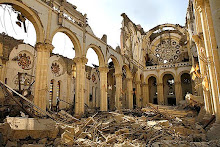Do you have friends or family that bought the unlimited texting plan? Sometimes they no longer answer the phone when you call and will instead take more time and energy texting back a return message. Unfortunately, such a method of responding sometimes comes across more as a convenience for them rather than a real desire to hear the voice of another human being who cared enough to call.

Recently, Pope Francis talked about two kinds of poverty: material and spiritual poverty:
"But there is another form of poverty! It is the spiritual poverty of our
time, which afflicts the so-called richer countries particularly
seriously. It is what my much-loved predecessor, Benedict XVI, called
the "tyranny of relativism", which makes everyone his own criterion and
endangers the coexistence of peoples. And that brings me to a second
reason for my name. Francis of Assisi tells us we should work to build
peace. But there is no true peace without truth! There cannot be true
peace if everyone is his own criterion, if everyone can always claim
exclusively his own rights, without at the same time caring for the good
of others, of everyone, on the basis of the nature that unites every
human being on this earth."
Remember "It's not live, it's
memorex!"? The substitute for reality was considered as good as reality
itself. Today unlimited texting is attractive: no surprises at the end
of the month in our bill! God, however, does not want our unlimited
texts, He wants us. There are some things more important than control
over how much something will cost us, over how much we must invest in
the things we want, over unpleasant surprises in our bill at the end of
the month. How about avoiding a permanently unpleasant surprise at the
end of our lives when God respects our choice to give Him something less
than ourselves which is the cost of loving?
When each of us judges and acts purely on our own criteria relationships suffer and with them, so do we. Unlimited texting is good for avoiding surprises in our bill at the end of the month, but isn't there someone or something more important than control over things, over money, over this world which will end? People are more important than things. And God who gives His own life in Christ on the Cross is the most important Person of all.
The fear of material poverty can drive us to the point where we are
spiritually impoverished: we can even become an accessory to the crime
of being robbed of heaven if work or things or earthly realities of any kind choke out the spiritual life, the life of God in each one of us.
The way to heaven
is the royal road of the Cross, a road that we must really and truly
walk with the One who truly died on the Cross and who now offers to
accompany us as we carry our crosses in union with Him.
The liturgies of the Triduum, Latin for "three days", are the most important days of faith for us all year, an opportunity to live together with the Church the events of Christ's Passion and death, burial and Resurrection for our salvation. When each of us celebrates these events by participating in the liturgies which we will hold on those three days here in our church, we will truly live and experience them with Christ our Savior. Is this not a very important opportunity for us to act on our love for Him, to more deeply accept the graces of salvation? Please plan to join us for these most important days.
The
riches of the Cross, the treasure of our salvation, is ours when we are truly present to His truly present
self-giving, so simply and beautifully ours, in every holy Mass.
God love you.














